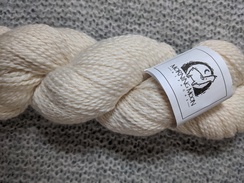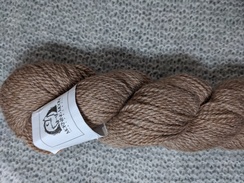Alpaca Farming a Business Investment
Business Investment Income From Alpacas
Alpaca Farming
How do I make a living raising alpacas?
Like any farm business there are usually animals to sell at auction or a crop to harvest at the end of the growing season. Alpacas produce a crop of fiber harvested usually in the spring. Depending on your personal goals the fiber can be sold raw, cleaned and processed into roving, yarn or materials. These products can be sold at any level of process at various prices always increasing in price as the level of process increases. Kind of like growing corn. Raw at a basic price per measured weight and then more expensive as it reaches the grocery store shelf in a can sold by the ounce.
The crop of fiber if harvested and sold at various levels of process can cover business expenses and provide some income.
Other sources of income from alpacas is found in raising, breeding and selling the alpacas from your farm or at auction. Raising your own crop of animals to sell. Owning high quality stud males for stud services can be an additional source. A farm store or a retail shop to sell your fiber and products, farm tours to educate and entertain, shearing alpacas for other farms, maybe open a fiber mill and the list goes on. What about processing the "poop"? There is an incredible source of all natural fertilizer, usable right off the field. How's that for Green?
There are many niches in the industry to to provide additional income. You need to determine your niche and as in any farming operation your level of production processes.
Alpacas Seem Expensive:
It is true if you look a single price of an alpaca and see a price of $10,000.00, it looks huge. Let's break down the price of a female at 10k:
Example:
Purchase a pregnant female with a cria at her side and a free breeding, you have just purchased 4 alpacas. This is considered a package deal. Divide 10/4=2.5. Now you just realized 4 alpacas at $2,500 a piece. Include the tax incentives and depreciation of your alpaca purchase, the net value per animal is under 2K. All of a sudden you see it is very affordable to enter the Alpaca business. If you were to get into the cattle business the costs are comparable all things included. Include in the cost that you are making a long term investment, sell one alpaca from the female you originally purchased and recover your initial cost, then every cria thrown by that female after that is pure profit (Free). Start selling those free alpacas and you have a viable business income.
Tax Benefits
As with any agriculture farming operation whether it be cows, pigs, chickens or alpacas there are many tax advantages for your business. Talking to an agricultural knowledgeable tax advisor can give information about the great tax incentives and advantages to save money on your investments. From purchasing a farm to depreciation on animals, equipment etc., capital gains treatment, and if you are an active hands-on owner, the benefit of offsetting your ordinary income with expenses from your farming business. Alpaca breeding allows for tax-deferred wealth building. An owner may elect to let his herd grow over time without paying income tax on its increased size and value until they decide to sell an alpaca. Thousands of tax dollars can be recovered and saved yearly thereby helping you grow your business and purchase more alpacas. (See Article Tab for More Tax Information from AOBA.)
Where else can you aquire an investment which is guaranteed to work properly and is insurable and provides you and your family with daily joy?
Now found on nearly every continent and 16 countries, alpaca farming continues to grow in popularity.
How Do I Get Into Alpaca Farming?
If alpacas are in your future, Morning Moon Alpacas can and will help you achieve your dreams and goals!
If you're looking for a promising investment, a lifestyle change or a wholesome family business, Morning Moon Alpacas has exceptional huacaya alpacas and the experience to make your future endeavor a success!
We Would Love For You to Visit Morning Moon Alpacas
Please give us a call today 417.235.5171 or email us from the (Contact Tab)
How do I make a living raising alpacas?
Like any farm business there are usually animals to sell at auction or a crop to harvest at the end of the growing season. Alpacas produce a crop of fiber harvested usually in the spring. Depending on your personal goals the fiber can be sold raw, cleaned and processed into roving, yarn or materials. These products can be sold at any level of process at various prices always increasing in price as the level of process increases. Kind of like growing corn. Raw at a basic price per measured weight and then more expensive as it reaches the grocery store shelf in a can sold by the ounce.
The crop of fiber if harvested and sold at various levels of process can cover business expenses and provide some income.
Other sources of income from alpacas is found in raising, breeding and selling the alpacas from your farm or at auction. Raising your own crop of animals to sell. Owning high quality stud males for stud services can be an additional source. A farm store or a retail shop to sell your fiber and products, farm tours to educate and entertain, shearing alpacas for other farms, maybe open a fiber mill and the list goes on. What about processing the "poop"? There is an incredible source of all natural fertilizer, usable right off the field. How's that for Green?
There are many niches in the industry to to provide additional income. You need to determine your niche and as in any farming operation your level of production processes.
Alpacas Seem Expensive:
It is true if you look a single price of an alpaca and see a price of $10,000.00, it looks huge. Let's break down the price of a female at 10k:
Example:
Purchase a pregnant female with a cria at her side and a free breeding, you have just purchased 4 alpacas. This is considered a package deal. Divide 10/4=2.5. Now you just realized 4 alpacas at $2,500 a piece. Include the tax incentives and depreciation of your alpaca purchase, the net value per animal is under 2K. All of a sudden you see it is very affordable to enter the Alpaca business. If you were to get into the cattle business the costs are comparable all things included. Include in the cost that you are making a long term investment, sell one alpaca from the female you originally purchased and recover your initial cost, then every cria thrown by that female after that is pure profit (Free). Start selling those free alpacas and you have a viable business income.
Tax Benefits
As with any agriculture farming operation whether it be cows, pigs, chickens or alpacas there are many tax advantages for your business. Talking to an agricultural knowledgeable tax advisor can give information about the great tax incentives and advantages to save money on your investments. From purchasing a farm to depreciation on animals, equipment etc., capital gains treatment, and if you are an active hands-on owner, the benefit of offsetting your ordinary income with expenses from your farming business. Alpaca breeding allows for tax-deferred wealth building. An owner may elect to let his herd grow over time without paying income tax on its increased size and value until they decide to sell an alpaca. Thousands of tax dollars can be recovered and saved yearly thereby helping you grow your business and purchase more alpacas. (See Article Tab for More Tax Information from AOBA.)
Where else can you aquire an investment which is guaranteed to work properly and is insurable and provides you and your family with daily joy?
Now found on nearly every continent and 16 countries, alpaca farming continues to grow in popularity.
How Do I Get Into Alpaca Farming?
If alpacas are in your future, Morning Moon Alpacas can and will help you achieve your dreams and goals!
If you're looking for a promising investment, a lifestyle change or a wholesome family business, Morning Moon Alpacas has exceptional huacaya alpacas and the experience to make your future endeavor a success!
We Would Love For You to Visit Morning Moon Alpacas
Please give us a call today 417.235.5171 or email us from the (Contact Tab)
Tuesday, April 26, 2011







